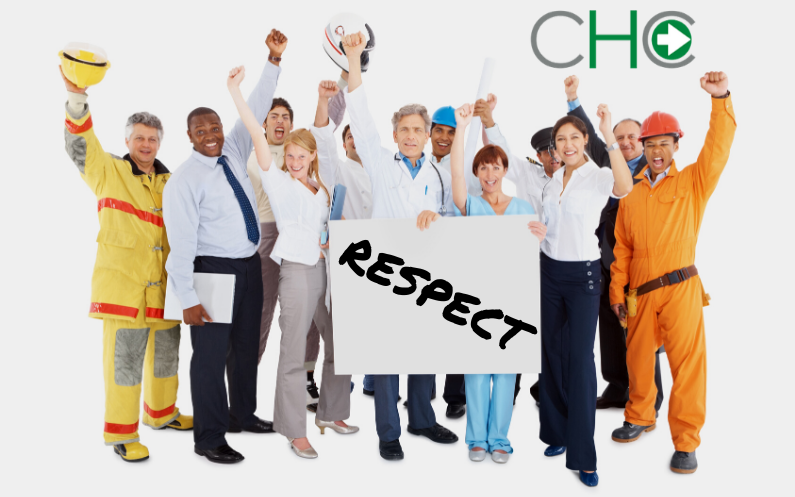This is a time when leaders are challenged to step up and be authentic and genuine. How leaders lead during these times will impact their organization now and in the years to come as we move through the pandemic phase into economic recovery.
During the month of June, I am focusing on several aspects of Team. In this post, I am talking about the aspect of mutual respect in effective and efficient teams. I am further breaking down respect into 3 key components: Empathy, Validation of roles, and Trust.
Video transcript:
Hi, welcome to the next video blog for CHC Consulting. I’m Sue Carr, CEO.
This is a time when leaders are challenged to step up and be authentic and genuine. How leaders lead during these times will impact their organization now and in the years to come as we move through the pandemic phase into economic recovery.
During the month of June, I am focusing on several aspects of Team. In this post, I am talking about the aspect of mutual respect in effective and efficient teams. I am further breaking down respect into 3 key components: Empathy, Validation of roles, and Trust.
Empathy:
Being able to connect at an emotional level with someone else’s position and accept their perspective is one aspect of empathy. In a general sense, it is being able to understand the emotions of another and share those feelings. In a colloquial saying, it is being able to walk in someone else’s shoes meaning to experience their reality as your own.
In the workplace, empathy is needed to understand the challenges and perspectives of others to complete tasks smoothly and efficiently. When a leader or co-worker “get it” or understand the barriers or concerns raised by others, the solutions are easier to develop. This also dramatically decreases the incidence of negative feelings or energy in the workplace and leads to a positive work culture.
It has been demonstrated workplaces with a high degree of empathy are more productive and have less absenteeism and turnover.
Validation of other’s role/ contributions:
Being able to recognize and value the contributions of team members is also important. We all bring unique skills and perspective. No one on the team is more valuable than any other. Accountability may be different, but value to the overall success goes across and throughout the organization.
This ties closely to empathy, but while empathy is the understanding the emotions of others, validation is the understanding the material or intellectual contributions of others. When you truly understand the benefit of every member on the team or in the organization, you are able to look for ways to build off each other’s success, resulting in increased quality and efficiency. Knowing how your contributions support the rest of the team supports the ability to take pride in your accomplishments. This connects the team and builds cohesiveness.
Following years of economic constraints, there are very few organizations that have not cut their staff teams to the minimum. Every member in every department has a valuable role to play and others depend on this role. Take pride in your role and show pride in the work of everyone else. The end goal is the same for everyone.
Trust :
Trust everyone is giving their best at that point in time. A common phrase regarding trust is having each other’s back. This phrase originates from the idea that no one can be surprised and attacked from behind. The organization needs every member of the team to succeed to be a successful organization, now more than ever. Long gone are the times when team members could coast on the laurels of their team mates. Organizations have trimmed away the “cushy” positions long before the pandemic through previous cycles of “do more with less”.
Supporting each other and going the extra distance to help team mates is one the things that will separate those organizations that do well coming out of this pandemic from those who are much less successful.
The notion of trusting each other to do their best and do the “right thing” is a cornerstone for an effective team.
When you trust and value every member and demonstrate empathy for all members, the team becomes a cohesive herd, sticking together for effectiveness and collaboration. There whole together is stronger than any one individual and can weather these difficult times.
To learn more about how to build an effective team, contact Community Healthcare Consulting by email at: [email protected] to set up a time to discussion your organization or visit your website at www.communityhealthcareconsulting.ca
#covid19 #workplacewellness #hr #leadership #workfromhome #management #team #workstress #stress #humanresources #reopening #team #teamplayers #humanresources #respect #respectatwork

